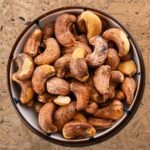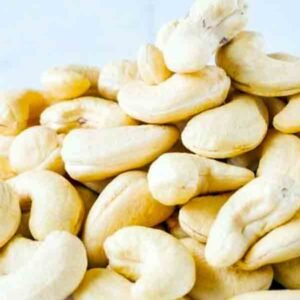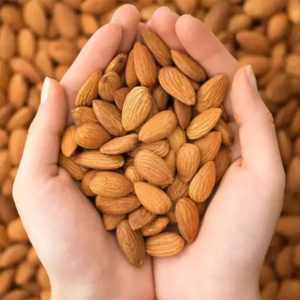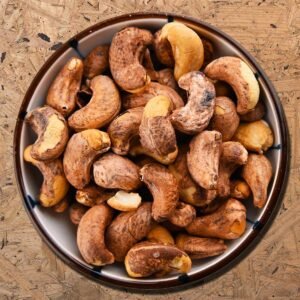Description
Cashew nuts are seeds produced by the cashew tree (Anacardium occidentale), which is native to northeastern Brazil. They are kidney-shaped and typically found attached to the bottom of a cashew apple, the fruit of the cashew tree.
Here are some key points about cashew nuts:
- Nutritional Value: Cashew nuts are rich in nutrients such as vitamins (especially B vitamins), minerals (like iron, zinc, and magnesium), and healthy fats (monounsaturated fats).
- Culinary Uses: They are popular in both sweet and savory dishes. Cashews can be eaten raw, roasted, or salted and are commonly used in cooking, baking, and as a topping for dishes.
- Health Benefits: Consumption of cashew nuts in moderation is associated with various health benefits, including heart health due to their healthy fat content, improved bone health, and potential antioxidant benefits.
- Allergy Note: Some people may be allergic to cashew nuts, which can cause severe reactions. It’s important for those with allergies to avoid cashews and products containing them.
- Economic Importance: Cashew nuts are a significant agricultural export in several countries, including India, Vietnam, Nigeria, and Brazil. The nut itself is surrounded by a toxic shell that must be carefully removed before consumption or processing.
Overall, cashew nuts are not only tasty but also offer a range of nutritional benefits, making them a popular choice in many cuisines worldwide.








Reviews
There are no reviews yet.